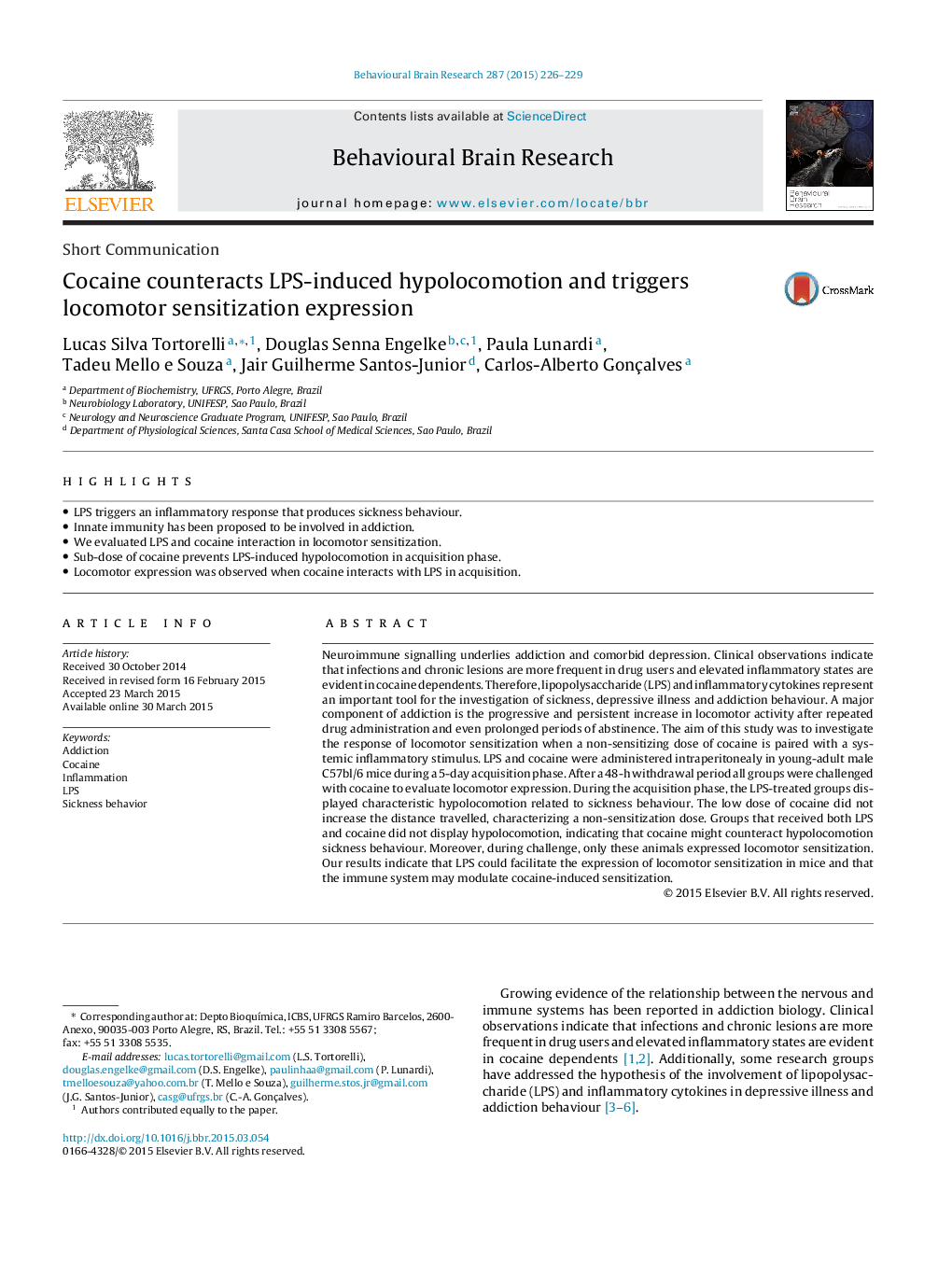| Article ID | Journal | Published Year | Pages | File Type |
|---|---|---|---|---|
| 6256947 | Behavioural Brain Research | 2015 | 4 Pages |
â¢LPS triggers an inflammatory response that produces sickness behaviour.â¢Innate immunity has been proposed to be involved in addiction.â¢We evaluated LPS and cocaine interaction in locomotor sensitization.â¢Sub-dose of cocaine prevents LPS-induced hypolocomotion in acquisition phase.â¢Locomotor expression was observed when cocaine interacts with LPS in acquisition.
Neuroimmune signalling underlies addiction and comorbid depression. Clinical observations indicate that infections and chronic lesions are more frequent in drug users and elevated inflammatory states are evident in cocaine dependents. Therefore, lipopolysaccharide (LPS) and inflammatory cytokines represent an important tool for the investigation of sickness, depressive illness and addiction behaviour. A major component of addiction is the progressive and persistent increase in locomotor activity after repeated drug administration and even prolonged periods of abstinence. The aim of this study was to investigate the response of locomotor sensitization when a non-sensitizing dose of cocaine is paired with a systemic inflammatory stimulus. LPS and cocaine were administered intraperitonealy in young-adult male C57bl/6 mice during a 5-day acquisition phase. After a 48-h withdrawal period all groups were challenged with cocaine to evaluate locomotor expression. During the acquisition phase, the LPS-treated groups displayed characteristic hypolocomotion related to sickness behaviour. The low dose of cocaine did not increase the distance travelled, characterizing a non-sensitization dose. Groups that received both LPS and cocaine did not display hypolocomotion, indicating that cocaine might counteract hypolocomotion sickness behaviour. Moreover, during challenge, only these animals expressed locomotor sensitization. Our results indicate that LPS could facilitate the expression of locomotor sensitization in mice and that the immune system may modulate cocaine-induced sensitization.
